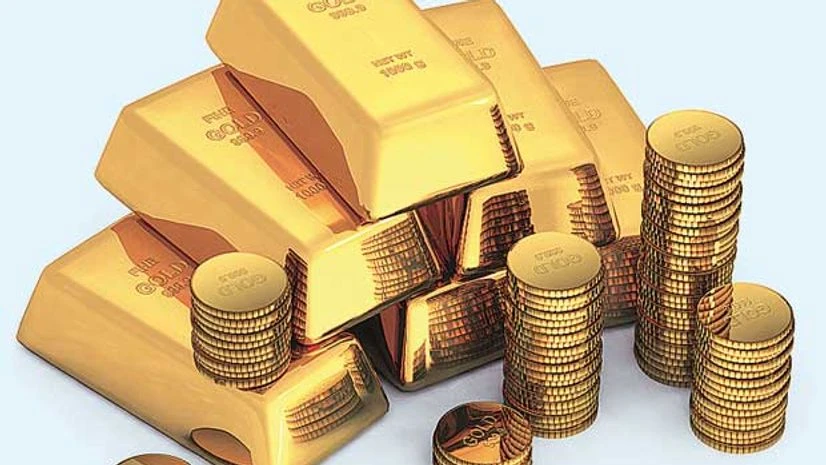The government is considering a proposal to set up a gold exchange, said sources, and the approval is expected in a month. It has been proposed by the India Bullion and Jewellers Association (IBJA) and the BSE stock exchange, in a 70:30 equity partnership.
Initially, traders and high networth investors would be allowed to buy and sell gold. After two months, smaller investors would also be permitted to transact on the platform. To start, the minimum lot size will be 1 kg; smaller denomination contracts will then be introduced.
Buying gold from the exchange will be beneficial on various fronts. Pricing will be transparent and deals at almost wholesale prices. Investors would also not have to worry about purity and settlement, as both will be guaranteed by the exchange, which will develop the infrastructure, including proper storage. Investors will also be allowed to keep gold in electronic form with repositories. The exchange will also develop products for investors which are not available currently.
Ibja and BSE had appointed EY as consultant to recommend a road map and operational areas. EY has given an interim report that this could be developed on the lines of the Shanghai Gold Exchange, and act as an official platform for all types of trade in the yellow metal, including sale of imported gold. The three-phase roll-out plan includes bringing smaller investors in the second and third phases.
Based on this report, Ibja sent the formal proposal. BSE, with 30 per cent equity, will have control of the management and operations. Ibja would lower its stake in the exchange at a later date.
Investors would also be able to lease their idle gold holdings for the short-to-medium term on the exchange's platform and earn interest on it, said a person familiar with the plan. Currently, banks lease out gold to jewellers. It would be possible for willing investors to lease out their holdings on the exchange, on similar lines to their lending of shares on stock exchanges. This will help jewellers get gold, while investors will earn lease rent, without losing the opportunity to hold physical gold. Retail (small) investors, once allowed, will be able to buy even smaller denomination coins at market price without worrying about the purity.
And, all local trades in bullion will shift to the exchange platform, with the minimum trading lot of a 1-kg bar. In subsequent phases, small lots would be permitted, if the proposal is accepted in its current form. In the next phase, the exchange would consider investment products such as e-gold for retail investors.
|
PROPOSED The gold exchange, once approved, will change the way the yellow metal is traded in the country |
OWNERSHIP
|
INFRA
|
TRADING
|
INVESTORS
Note: These are based on EY recommendations |
In line with the Shanghai bourse, the proposal envisages gold-importing agencies to sell gold only on the exchange's platform, bringing transparency in pricing and premiums, and leading to a formal mechanism to measure the flow of imports into the country.
At present, gold spot trading is not regulated, and trade is informal and spread in the country. There is no mechanism to record these transactions. The proposal, however, will require the government to make buying and selling of gold compulsory on an exchange's platform. IBJA will give membership for trading on an exchange. If implemented, the proposal will also bring opaque trades on official books, an achievement given the parallel/cash market for unofficial gold in India.
For spot trading in gold, the exchange might require regulations. BSE has been a regulated entity but its regulator, the Securities and Exchange Board of India, does not have powers to regulate spot trading. The government is considering ways to solve this issue. Most stakeholders in the gold business and academia have proposed a National Bullion Board for regulating all gold-related policies.
Sources said it could take a while before a full-fledged gold exchange starts functioning, with participation of retail investors but when it happens, it would make the bullion market far more transparent.

)
